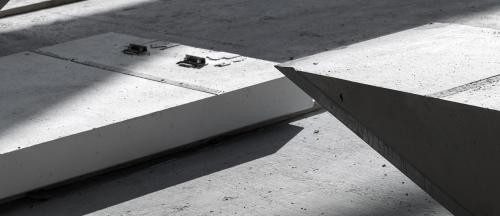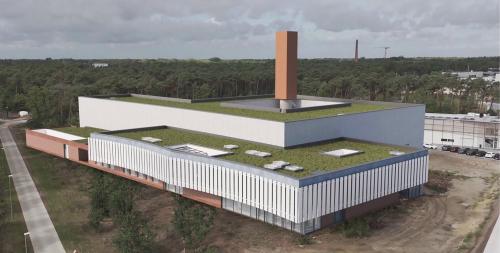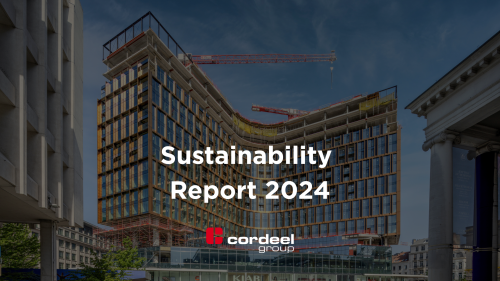C-concrete signs first Flemish Concrete Agreement
On the 4th action day of the Green Deal Circular Bouwen on Tuesday 6 December in Bruges, the Flemish Concrete Agreement was presented to the general public. The formal signing of the Concrete Agreement by the many companies and organisations that together want to realise the ambitions, including C-concrete, also took place at that time.
The Flemish Concrete Agreement makes work of concrete objectives:
- By 2030:
- 50% reduction in CO2 emissions from the production of concrete in Flanders (including extraction and reuse of raw materials, transport and construction/installation) compared to 1990 emissions
- the design of buildings and works of art should provide that concrete elements can be maximally reused or that the functions in the building can be maximally adapted.
Furthermore, no more substances will be present in buildings that prevent recycling.
- By 2050:
- 0 kg CO2 per m³ of concrete produced
We are one of the proud signatories of the Flemish Concrete Agreement, which fits completely within Cordeel Group's sustainability strategy.
Green concrete
By using activated blast furnace slag, among other things, we can replace cement and thereby significantly reduce the carbon footprint of our precast elements. The 'Madaster' platform also allows us to map the ecological footprint of an entire building and create a material passport.
Modular and demountable construction
Innovative construction methods such as C-fast help us significantly increase assembly speed on site and deliver products of the highest quality. The C-fast system is a modular and beamless system that can be used in non-residential construction, mixed-use buildings and apartment buildings, with an assembly speed of no less than two days per floor.









